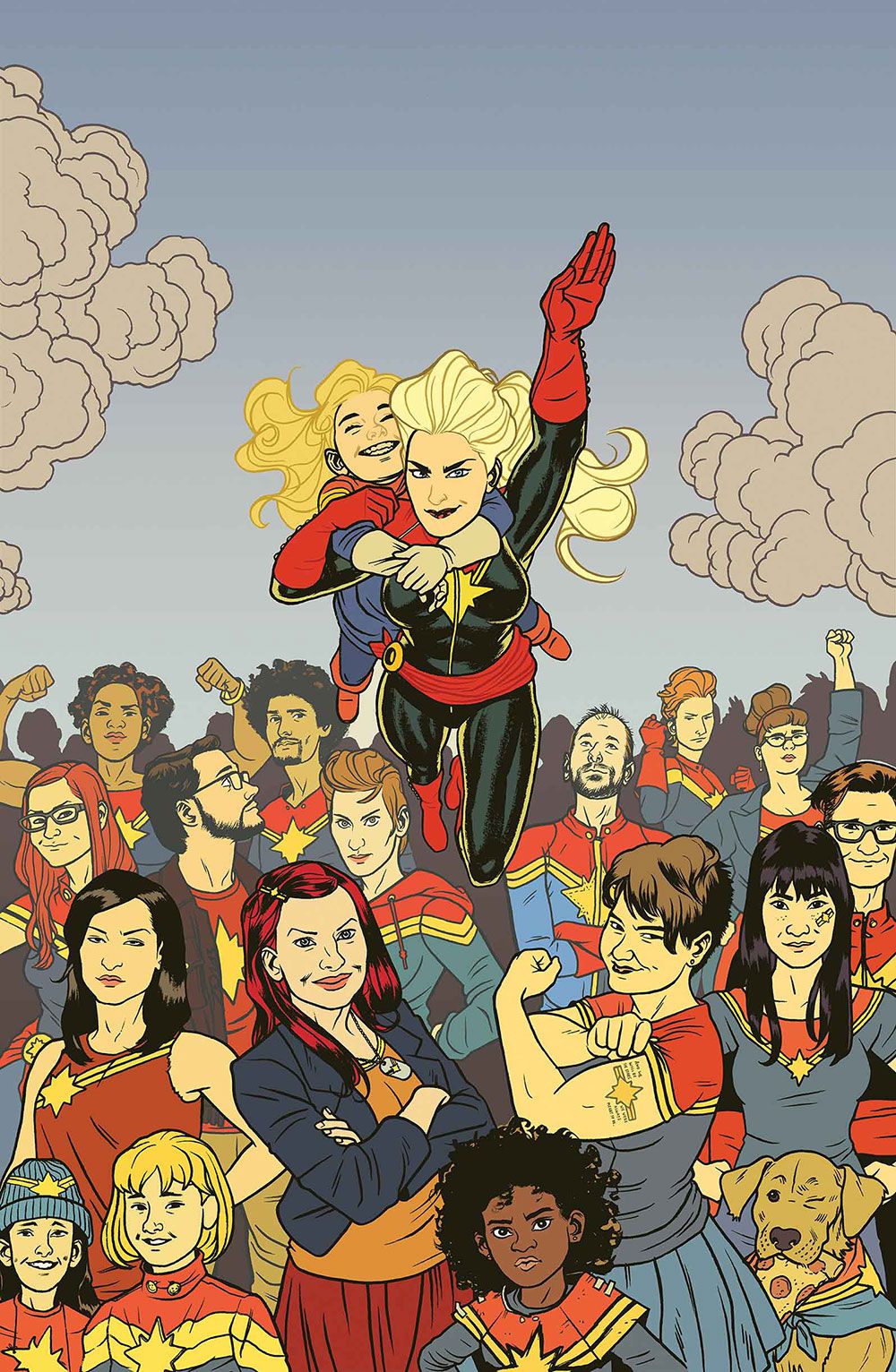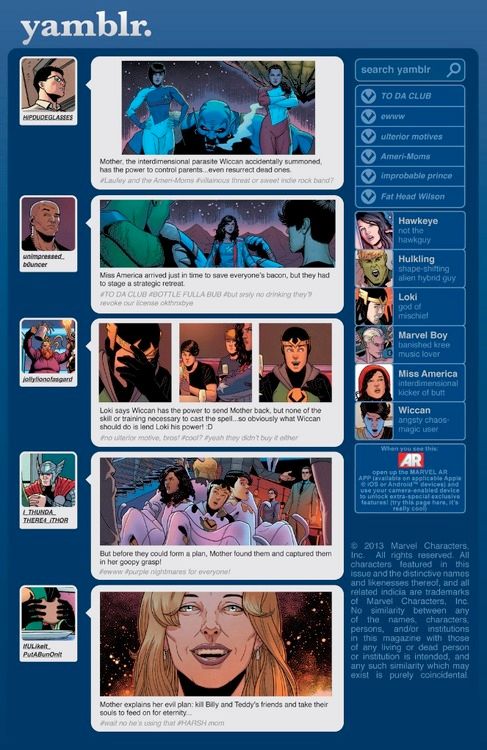Here I am, like so many of you fine, wonderful people, relaxing at home instead of walking among the majestic masses of Comic-Con International in San Diego. Comic Book Resources and Robot 6 are keeping we homebodies abreast of all the news from this year's mega-super-hyper event, so it's kind of nice to be able to sit in a comfortable chair while still keeping informed and not having to pay $9 for a burrito.
Sure, it'd be nice to be there, wouldn't it? To stand in line and take your chance at a microphone to tell the House of Ideas your opinion, ask questions of your favorite creative teams and get attention from the editorial team? Good news! That's what social media can do for you! We live in an amazing time where a tweet to your favorite artist could be replied to with casual familiarity or a Tumblr post could get you a sneak peek at exclusive artwork. Marvel Executive Editor Tom Brevoort has a Formspring account (now moved to Tumblr here) so you can ask him any question at any time of night. The people who produce comics are surprisingly at the hands of their public, which for Marvel, isn't that new of an idea.
Read some Stan "The Man" Lee era comics and you'll see the Marvel Bullpen come to life in the editorials and letter pages. When going through reader mail, you'll see that readers are answered by first name and, good or bad, everyone has a chance to be heard. Social media just puts that personal touch at our fingertips. Sometimes, this is amazing and can bring together fans and creators to grassroots promotions that keep little-titles-that-could on our shelves and in our hearts. Other times ... well, Dan Slott promised last month that he was going to stop retweeting so much Spider-Man hate and I, for one, breathed a sigh of relief.
After endless pleas I'll take your advice about SSM... and stop RT'ing the over-the-top hate tweets. :-) Yep. THAT'S my take away from this.
— Dan Slott (@DanSlott) May 21, 2013
I mean, "The Man Who Killed Peter Parker" gets a lot of hate and a lot of it was just 140-character Twitter rage. Passionate, instant and sometimes a little incoherent, the angry vitriol sent to the Superior Spider-Man writer put a lot in perspective. First of all, it's really hard to look smart when telling a writer that you hate him for hating a fictional character or not writing in a preferred manner. It may make you feel better to vent directly and demand answers from the source, but it accomplishes very little and can only further your point if the target of your rage responds. Then everyone starts to look bad.
If you read enough "Dan Slott sucks because he killed Peter Parker" tweets and letters and blog posts, then it starts to be less about the issue (Peter Parker is a beloved character and people don't like the new turn of events) and more about how angry people are about that issue. When people send a death threat to a creator, we care little about the issue the threat was over and more about Holy Cats, Someone Wants to Harm Dan Slott! So what can you do? If there's something going on in comics you feel so strongly about that you would threaten another person, how can you maybe channel that emotion into something more productive? Because, let's face it, telling anyone over the Internet that you're going to harm them isn't going to do anything but vent your rage and make sure the authorities get into the mix. Your point goes out the window. Death threats out, what about just telling an artist or writer or editor that you hate them? Again, road rage vented, you might hurt someone's feelings but comic book publishing isn't really run on that kind of thing. For as many people say that "Dan Slott sucks because he killed Peter Parker," Superior Spider-Man keeps rolling along twice a month and Slott remains on the title. If anything, the shaking fists in his direction have made Slott a little thicker-skinned as he gleefully retweets the hate for his followers to see.
So, does Twitter actually connect readers to creators at all? Is it all just sound and fury? In December, the same month that Slott got his death threat, writer Gail Simone told her fans on Twitter she had been fired from Batgirl, her signature title. Fans of Simone and Batgirl took to social media and complained loudly. Support poured in from fans to fellow creators, and Simone handled her own disappointment with grace and dignity. Lo and behold, Simone was back on Batgirl. I'm sure that Simone's professionalism and celebrity status in comics went a long way to ensure her happiness at DC Comics, but the outcry on social media undoubtedly did a lot for her as well.
When used as a force for good, our ability as fans to sit in the living room of the House of Ideas is incredible. The #Carol Corps on Tumblr has not only brought some well-deserved attention to Marvel's only solo superheroine title, but sent a girl to summer camp, created an amazing amount of fan works, and even will get its own issue, Captain Marvel #17, due out in October. Kieron Gillen, Si Spurrier and Matt Fraction have done issue breakdowns for their Marvel NOW! titles (Gillen going so far as to feature a Tumblr recap page in Young Avengers). Marvel editors are not only available to give you instant news and access to the latest goings-on, but to also share their love of DDP Yoga, excitement over sports teams or dislike of Star Trek Into Darkness (I'm with Arune Singh on this one). Even the Marvel AR app has creators literally talking to you about their works as you read the book in your hands. There's something really wonderful about that.
So as we watch the results and announcements roll in from Comic Con this year, take a moment to tweet or email or post some thanks to a creator you enjoy. Tell them what you like about what they're doing and we'll most certainly get more of it for months to come. If you're not enjoying it, just remember to be constructive with your criticism rather than resort to road rage because no matter how hurtful or angry you are about your comics, the Marvel offices will just keep rolling along.



